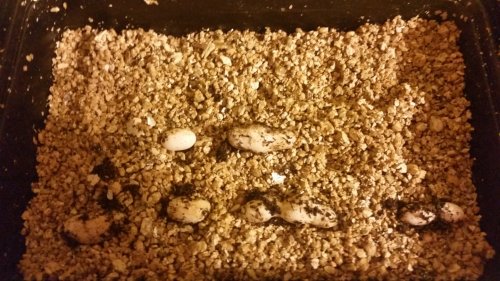Have bred Chameleons for many years and have sucessfully catered to each females' layer bin preference. Encountered my first lady that refused to dig and bury her eggs. Yes, all tricks were played - privacy, various sizes and depths for the bin, laying substrate moisture monitored, temperature monitored and controlled, access to the bin acceptable for the lady's size, and everything she needed to drink and eat was made available. This girl still continued to drop eggs everywhere. None were buried.
She appears to be empty but without seeing the packed tunnel I'm still watching her for possible egg binding. She has ben cleaned, hydrated and is eating calcium dusted gut loaded crickets and roaches.
Has anyone run into this refusal to dig and bury and do you have any advice to pass along?
She appears to be empty but without seeing the packed tunnel I'm still watching her for possible egg binding. She has ben cleaned, hydrated and is eating calcium dusted gut loaded crickets and roaches.
Has anyone run into this refusal to dig and bury and do you have any advice to pass along?



